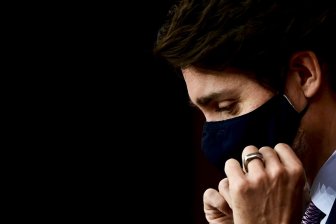Surrey Mayor Doug McCallum is defending a decision last month not to include First Nations land acknowledgements at city council meetings.
“We haven’t let the First Nations down, in fact, part of my family is First Nations,” McCallum told Global News Morning on Friday.
Read more:
Surrey councillor ‘disappointed’ after council denies motion to acknowledge Indigenous lands
“Well, I haven’t heard any in Surrey,” he said after being told many people do say they feel let down over the issue.
Surrey Coun. Jack Hundial brought the motion to council on Jan. 11, seeking to begin every council meeting by recognizing the city’s commitment to reconciliation and that “the land we are on is the traditional territory of the Coast Salish people.”
McCallum and his slate of Safe Surrey Coalition councillors voted against it, defeating the motion.
Indigenous people in B.C. say they are disappointed by the move.
“I think this is very tone deaf on behalf of Mayor McCallum,” Terry Teegee, regional chief with the B.C. Assembly of First Nations told Global News.
“I find it very unusual because quite simply, other cities such as the City of Vancouver, City of Prince George, other municipalities are doing it everywhere.
“I think it would go a long way in creating a space and relationships with other First Nations leaders, because I’ve certainly heard from them.”
McCallum’s claims to be on good terms with all First Nations in his community simply aren’t true, Teegee said, adding while land acknowledgements are a small step, they’re an important part of reconciliation.
Chief Judy Wilson, secretary-treasurer with the Union of B.C. Indian Chiefs, described a plan outlined by McCallum to include a large First Nations carving at Surrey City Hall as empty symbolism.
“We’ve seen this time and time again, it’s called tokenism,” She said.

“He needs to step up and give that apology and he needs to be able to do the land rights recognitions and beyond just tokenism of art and totem poles,” added Wilson
So what are councillors afraid of if they engage in this practice of acknowledgement?
That’s a key question for UBC professor dr. Shannon Leddy.
“I was confused about what is the political intent behind the rejection of a call for that acknowledgement,” she said.
“These really tacit forms of resistance that are generally rooted in a not knowing, or not understanding, who the indigenous people on this land are — and that to me is what that sounds like.”
And until that changes, she said, there’s no true responsibility being taken for what it means to live in a colonized land.
© 2021 Global News, a division of Corus Entertainment Inc.








